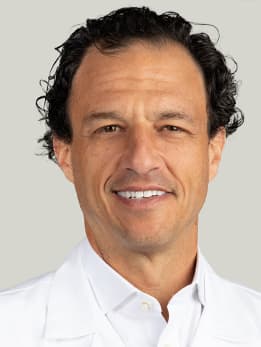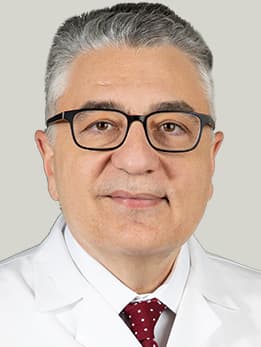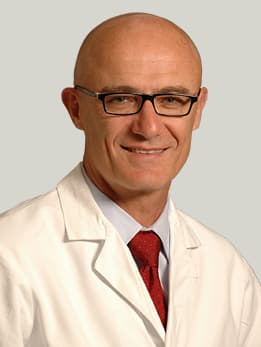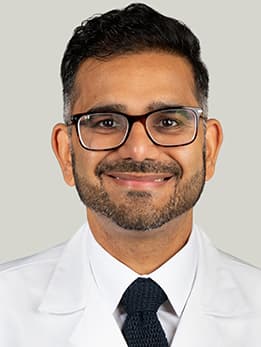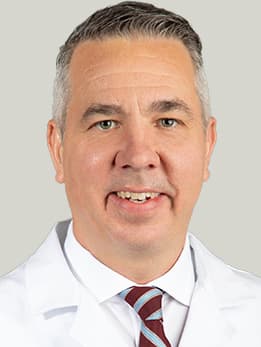Focal Therapy for Prostate Cancer
At the University of Chicago, we are proud to offer a comprehensive and personalized approach to prostate cancer treatment. Our focal therapy program uses the latest technologies to target cancer precisely while preserving your quality of life. With advanced treatments like high-intensity focused ultrasound (HIFU), irreversible electroporation (IRE), cryoablation, and TULSA Pro, we provide world-class care tailored to your needs.
What is Focal Therapy?
Focal therapy is an innovative, minimally invasive approach to treating prostate cancer. Unlike traditional treatments like surgery or radiation, focal therapy targets only the cancerous areas, leaving healthy prostate tissue intact. This approach minimizes side effects, such as urinary incontinence and erectile dysfunction, and offers faster recovery times.
Why Choose Us?
- Experienced Specialists: Our team includes leaders in prostate cancer care and research.
- Advanced Technology: We use state-of-the-art equipment to deliver precise and effective treatments.
- Comprehensive Support: From diagnosis to recovery, we guide you every step of the way.
Meet Our Team
Advances in Prostate Cancer: Expert Q&A
[MUSIC PLAYING]
And we want to remind our viewers that today's program is not designed to take the place of a visit with your physician. Let's start off having each of you introduce yourselves and telling us what you do here at UChicago Medicine. And Dr. Eggener let's start with you.
Hey, Tim. Thanks for having us and covering this important topic. My name's Scott Eggener. I'm a urologic oncologist and my primary interest clinically and in a research setting are men and at risk of prostate cancer or diagnosed with prostate cancer.
Dr. Shalhav.
Hi. My name is Arieh Shalhav. Thanks for having me. I'm the Chief of Urology here, and I focus on prostate cancer and kidney cancer in my [AUDIO OUT].
Great. So let's just start off with the questions. We want to remind our viewers that they can ask questions of our two experts. Just type them in the comments section either here on Facebook, or you can pop into YouTube as well where we're also simulcasting and ask those questions. We're going to start off with you Dr. Eggener. The first question, so who should get screened for prostate cancer?
That's a great question and the short summary is not every man needs to be screened. But if he is healthy, and going to live a while, and well-informed, prostate cancer screening is a smart move and at least having a conversation with your primary care physician or urologist. Men who are at particularly high risk and probably more of an impetus to consider screening is if they have a strong family history. If they have a known genetic abnormality that runs in their family, most commonly BRCA1 or BRCA2 to mutations, or African ancestry or Ashkenazic Jewish ancestry.
That's interesting, and you bring up the BRCA mutations. We hear about that a lot when we talk about breast cancer. So that's also something that a male patient should be aware of.
Absolutely. Unbeknownst to most people walking around, but the BRCA mutation can absolutely impact men.
Interesting. So Dr. Shalhav, if somebody does have prostate cancer, should they see a urologist or an oncologist for treatment?
The initial visit should be I think to a urologist. Prostate cancer touches a lot of fields in a patient's life that are managed by a urologist, but at the same time, they need to see a radiation oncologist. This is mainly to choose the treatment for localized disease. If it's found to be advanced, then they'll need to be seeing an oncologist too.
Interesting. So prostate cancer is serious, but one of the rumors, and you see this on the internet, and of course, I know if you're reading on the Internet, probably you need to take it with a grain of salt. But that prostate cancer isn't fatal. And Dr. Eggener, if you can talk about that a little bit. The truth to that or the lack of truth to that.
Prostate cancer comes in many different shapes and sizes and levels of aggressiveness all across the spectrum. And there's a huge proportion of men diagnosed with the disease who do not benefit from treatment, and we can absolutely observe it safely with little impact on their life. There's a huge group of men who require treatment with the goal of minimizing problems down the road. And unfortunately, there's still a substantial number of men, about 28 to 30,000 men every year in the United States who either present with metastatic disease or develop it and ultimately die of the disease.
So, of course, it is very serious, and it's something that people need to be aware of and keep an eye on. And can we talk a little bit about active surveillance, Dr. Shalhav? Tell us what that is and what people need to know.
I just want to add to Dr. Eggener's concept that prostate cancer at the first levels of disease, the initial levels of disease is actually almost like [AUDIO OUT] disease today. You live with it, [AUDIO OUT] die of it. And Dr. Eggener is one of the thought leaders that Gleason 6 prostate cancer should not be treated. And it's actually a concept that is slowly, but surely takes a hold and everybody starts practicing it.
And active surveillance is actually using the data we have on how people can live through their life and never have issues with prostate cancer. And puts patients on protocols to reduce the amount of treatment that we do for them, and avoid all the complications and side effects that may happen. And basically, the protocol should be that they see a urologist for the first time. They do the initial biopsy, get diagnosed. And then once the decision is made together with the patient to be on active surveillance, it's a six monthly PSA check, a confirmatory biopsy within a year after the initial biopsy. And just continuing with the PSA check and rectal exam every six months, and that can take years.
As you know, any patient who is 90, any person who is 90, if we do [? postpone ?] with them, we'll have prostate cancer in their prostate. This is the type of cancer that we live with and not die with.
So let's talk a little bit about genetic testing if we can because you mentioned the BRCA gene earlier, Dr. Eggener, and that always fascinates me. Because we hear about genetic testing for various disease states, but prostate cancer is there as well. What would you tell a patient who's asking about genetic testing, and how would they pursue that?
Yeah. It's a message that needs to be spread more actively because even in the medical community, it's not talked about enough. But it's been a really exciting time over the last five, 10 years learning more about the genetic basis of prostate cancer and who's at risk. And we could go on for a long time, but the bottom line is if there's a family history of prostate cancer, breast cancer, ovarian cancer, pancreatic cancer, sometimes colorectal cancer, there is potential value in testing saliva or blood to see if there's a reason why these cancers run in your family.
And that can be incredibly helpful for the individual man, but also other men and women in the family to screen appropriately diet and lifestyle modifications. And even based on that genetic information, sometimes there's targeted therapies that are most appropriate. Completely separate from that there are genetic tests that can be done on the cancer itself, which I'm not going to get into at this time, but can sometimes provide value in a treatment plan.
So, we've got a question from a viewer. I want to throw that one out there. Either one of you can answer this one and it's a broad question so you can both jump in if you want to. But what is the best latest treatment for prostate cancer?
I'll be happy to take that. There is no one best latest treatment for prostate cancer. It's all individualized, customized to the patient's preference, the patient's level of disease. And this is a long discussion between the radiation oncologist, the urologist and the patient. And I think it really depends on the disease and the patient.
Dr. Shalhav, you're making I think an excellent point there because it's a lot of what your team does here at UChicago Medicine. You develop these plans for the patient that are very specific to the patient. And as you develop the treatment plan, one of the things that has come up again and again as we talk to patients is the communication. And it's so important, but it's something you all do very well, and I'm just always impressed by that. How do you work with the patients individually to develop these plans? There's quite a few steps that happen to do that. Is that correct?
So what's happening is you initially, you have the initial visit with the patient to figure out the basics, and then you refer the patient to your colleagues. This is a very collaborative multidisciplinary team that we are working with, and we refer to each other. And then in the complicated cases, we finally meet up and have a conference devoted to that patient where probably 10 people from different disciplines are discussing that specific vision coming up with the best recommendation.
But mostly if it's a straightforward, and the patient really knows, and read a lot and was prepared, the decision will be made after seeing a few urologists-- second opinion is good-- and radiation oncologist, and then go for the initial management of their prostate cancer. Be it active surveillance or actually an intervention where something is done.
And it's so important because each patient is different, and you all treat each patient as a different and certainly as an individual. This isn't a one size fits all thing, and I just think that's so important. We do have some sound bites from the patient that we interviewed that I believe was a patient, Dr. Eggener, that you dealt with. And Ken talked to us a little bit how when he found out that he had cancer, and he met you. We're going to roll that sound bite and we'll talk after that.
Yes. The PSA [? really ?] stayed normal for a good decade or more, but my internist felt a suspicious lesion, and that was in-- we did a digital exam back in 2018 and he recommended that I see a urologist. I ended up with looking for the best in the Chicago area, and we found that Dr. Scott Eggener and went to the University of Chicago Medicine.
So when I say that really this team is world renowned, you two are certainly in that category as is the rest of the team you work with. This is really the place to get that work. I do want to talk a little bit about his course of treatment, and Ken of course is not unique in what he faced, but he did have some unique challenges. And he's going to talk about those now, and then Dr. Eggener if we can, we'll have you comment on what Ken went through. Let's go ahead and roll that little clip.
And from there, we went with an MRI. MRI showed the lesions and then from there, we had a biopsy. But surprisingly, the lesions all came back benign, but there was a small center, like a millimeter of cancer in the middle of the gland. And that had a low Gleason score and I still had a low PSA, but we decided to still have it removed with my history.
I mean, we used the robotic assistant technology, and with that, you have smaller incisions and less pain, and a faster return to normalcy. And I think a lot of it was not only due to the robotic ish-- I mean, help of the robotic machine, but with that Dr. Eggener's-- I mean he was just skilled, and talented enough to use that equipment where it had little effect on my cognizant ability or my sexual-- no sexual dysfunction either as well.
So I actually spoke to Dr. Eggener about this afterwards saying that to be a surgeon, you have to have the brains to get through medical school, which everybody knows. But one aspect of it is that you should be somewhat have an athletic prowess or coordination because I mean, it's very intricate work. And the more you're in tuned with your hands and the skill, I think the better surgeon you are. And he agreed and he actually said that during their interview process, they asked certain questions that go along those lines.
Well, he's definitely a grateful patient and so-- and he's such a very nice guy. Dr. Shalhav, could you talk to us about some of the current innovations taking place in the treatment of prostate cancer? And Dr. Eggener, you might want to talk about this as well because you used the robot when you did his surgery. Let's ask that first Dr. Eggener. How does the robotic surgery help? And then Dr. Shalhav, we'll talk about HIFU here in just a minute.
Yeah. A lot to unwrap from Mr. Karr and the short summary is he's the poster boy of what we're proud of in our program. He had a really strong compelling family history that put him at high risk of disease, and partnering with him, and his internist, it was diagnosed early. It was treated effectively. He takes really good care of himself. Healed up quickly. Returned to his normal activities. And obviously it was a privilege to get to know him, take care of him, and continue a relationship.
The robotic technology is about 15 years old. University of Chicago was the first in the region to have it. We have a incredibly experienced team and program with more than 5,000 urological robotic surgeries, and it's fairly standard here and elsewhere now. But we're also always trying to figure out newer, better more minimally invasive ways of treating prostate cancer. And we're really proud of the program that we've had with focal therapy and newer programs with HIFU. And I'll turn it over to Dr. Shalhav who probably has some comments in that regard as well.
Dr. Shalhav.
Yes. So let's divide it into whole gland and focal therapy. The improvements that recently are happening with the whole gland is where radiation and surgery are trying to reduce the amount of side effects while we deliver the same care. And in surgery, it's actually-- the robotic approach has been there since 2000-- 2000 was the first case is done. We've done the first one here in 2002, and it's been forever. So people say, OK so why not just use the same thing and continue on because you can improve on it? And the percentage of side effects is reduced with robotic surgery, but you can do even better.
So people are now trying to do the same surgery we did with robotic surgery, but leave behind more tissues around the prostate so the effects of continence and potency will be reduced. And the same thing with radiation. It's whole gland therapy and how can we improve? So instead of 35 treatments over seven weeks, they're trying now new protocols with different intensities where you can deliver the same treatment in five days of treatment without increasing the level of complications.
But the big hype now is focal therapy. Slowly we're finding that certain patients fit the criteria to a focal therapy where you don't take the whole prostate with all the side effects related to it. And you can treat part of the prostate and get very good cancer control while maintaining the function of the patient.
So the most wild thing that's happening now is some people do a partial prostatectomy. You use the robot to cut only a half or a part of their prostate and leave the rest of the prostate be, which I think it's really out there. But everything else, including focal high intensity focused ultrasound, which you can do through the rectum or through the urethra with two different machines. Focal cryotherapy where you freeze only part of the prostate, brachytherapy where you put radioactive seeds into the prostate can be done also focally. Instead of putting it in the entire prostate, you actually choose the area with disease and put it only there.
There is now focal laser ablation which Scott has been doing for a long time. Probably more than a year now. And there is nanoparticle directed laser ablation where actually, you put nanoparticles in the area that we're going to retreat, and the laser energy is going to suck in to that area specifically. There's many more. Bipolar radiofrequency ablation is now used for focal treatment. There is irreversible electroevaporation, which all these things. Water vapor ablation. I can keep to saying things here which will confuse everybody, but it's very aggressively being studied now. What energies and treatments we can apply to prostate cancer and succeed in eradicating the prostate cancer and maintaining the functions of the patients.
What's amazing about what you just said was there's just so many options there for the patient. And again this is I think why it's so critical that if you're going on this journey, for want of a better term, you need to see the right people, and you need to talk to the right people. And of course we've been putting our information for you up on the bottom of the screen so people can contact you.
So let's talk a little bit. We've got I think three or four more questions that have come in from viewers. I want to get to as many of those as possible. So if you two are a game, let's hit those real quickly. First one is my husband was diagnosed at 48 years old with metastatic PC. No BRCA gene, no family history. Was a firefighter for 18 years, and this person thinks that it was determined that the occupation contributed.
Is it safe to say that those who have these types of occupations should screen prior to the suggested 50 years of age? I know that's a tough question and that's a difficult one to answer, but if you are in a high risk environment, is it a good idea to get screened more often?
That's a really unfortunate story and situation to hear about at such a young age being diagnosed with metastatic prostate cancer. At number one, there are multi-gene panels where there's dozens of genes that are tested for above and beyond BRCA that should certainly be tested in his situation. And almost regardless of the findings, even if there aren't any known mutations, certainly any siblings or children should be considered high risk for developing prostate cancer.
The second question that you had as far as the occupation of being a firefighter, there's a lot that's been written about it. And I've spent a considerable amount of time reading it over on firefighters and the risk of prostate cancer, and there's really no compelling evidence that being a firefighter puts you at higher risk of developing prostate cancer. So we don't consider it a high risk feature.
Another question from a viewer, what types of radiation treatment do you offer for low risk patients? I'm 100% sure what they mean by low risk. But I'll throw that one out there to you.
So there are two options. One is with the seed. There's still radiation because it's radioactive seeds that you put into the prostate, and that's very successful in low risk patients with-- they have the profile of side effects, but it's not as bad as others. The other one IMRT is intensity-modulated radiation therapy. It's offered here and this is customizing exactly the field of treatment to the patient. So you really minimize the effects on the rectum, on the bladder, neighboring tissues and sexual function and everything is maintained as good as you can still with whole gland radiation. But these are what we offer here.
Interesting. Another question from a viewer. Do we know why prostate cancer is so common? Does it have something to do with aging?
It's a great question and we just don't know. It'd be great to figure it out, but it is true as you get older, there is a higher likelihood of developing wimpy little prostate cancer and also more aggressive. There's all sorts of theories and genetics and environment and exposures, but the short summary is we don't know.
Dr. Shalhav, who is a candidate for focal therapy for prostate cancer, and is it for certain stages? This is another viewer question.
The classic patient for focal therapy is the lucky person that has prostate cancer only on one side of the prostate. How do you know it's only on one side of the prostate? We have two modalities that help us a lot. One is the MRI, which is capable in probably 85% preciseness to tell us where there are significant areas with prostate cancer in the prostate today. And we use MRI way more than we did even 10 years ago. It was not part of the paradigm as it is right now. It's part of the decision making and gives us very good information.
And the other one is the prostate biopsy. So if you have a patient that is fortunate enough to have biopsies and MRIs that show the same location of the tumor, that's a great candidate for focal therapy, which we'll actually include. It can be somebody with very, very aggressive tumor. So even if it's localized to one side, we're not going to do somebody who's got a Gleason 9 prostate cancer because then I do believe that we need to treat the whole gland. And obviously not people with metastatic disease. It's out of the barn and we're not doing anything focal anymore.
So Dr. Eggener, can you talk just a little bit about the high risk and advanced prostate cancer clinic, and what that means for patients?
Yeah. Relatively recently, we had the good fortune of partnering with a philanthropic donor who had an interest in prostate cancer. And we set up what we've dreamed about for a long time, which is a true multidisciplinary clinic for men that are at high risk of developing prostate cancer based on the risk factors we talked about, or newly diagnosed with advanced potentially lethal prostate cancer.
And in that clinic sits a urologist, a radiation oncologist, a medical oncologist, a genetic counselor, a clinical trial specialist, a research coordinator. And it's really one stop for the patient to visit with all those folks, get all the necessary information that they need on a genetic level, a screening level, a treatment level, potential clinical trials that are active. And then many actually, nearly all decide to partner with us from a research standpoint and give blood and tissue so that we can try learning and making significant advances
Dr. Shah off can you talk to us about the survivorship program and what that does?
Yes. This survivorship concept actually starts with the move now away from treatments that disrupt the human life. And we do more and more minimally invasive stuff and focal stuff and to preserve function, and to reduce the amount of time that the patients lose being functional. And the survivorship program actually includes number one, these things, which is to treat prostate cancer and reduce the functional problems. So you need to have a physical therapist helping you regain your continence. You need to have somebody who is an expert in erectile dysfunction that will help you get through the real learning curve of your system to get back to a sexual function.
Actually, counselors that talk to couples on how to get adjusted to the new situation and move on. There's also psychological effects. That we need the psychological support to help men go through this very serious step in their lives where life may change forever, and how to come on the other side and actually be a productive person with the effects of disease and the healing from the disease.
A very important part of it is also the lifestyle modification protocol, which includes exercise, healthy diet, weight reduction, stress release. And stress release, I would emphasize sleep. So I'm not going to belabor on it too much here, but whatever is cancer healthy is actually heart healthy, and vice versa.
And all these things together, what basically they do, they boost the immune system. And even if you have a circulating cell escaping, trying to escape and get into your system, if you have a robust immune system, you'll be able to fight back much better and keep everything at bay. If you are in a weak situation, you have multiple comorbidities, what we call the metabolic syndrome. Patient are unfortunately obese, smokers, hypercholesterolemia, very inactive, they are actually targets to not do well with any cancer, and with heart disease and so forth.
So the lifestyle modification protocol is definitely a part of survivorship, which we also need to emphasize very much. But that's the [AUDIO OUT].
Excellent. We are out of time on the program. Thank you, gentlemen. You were both fantastic. And thank you to the viewers for your questions. Please remember to check out our Facebook page for a schedule of programs coming up in the future. Also, if you want more information about UChicago Medicine, take a look at our website at uchicagomedicine.org, and if you want specific information about prostate cancer, go to uchicagomedicine.org/uchap.
If you need an appointment, you can give us a call at 855-702-8222. And remember, you can schedule your video visit also by going to the website. Thanks again for being with us today and I hope you have a great week.
[MUSIC PLAYING]
Our Focal Therapy Locations
Request an Appointment for Prostate Cancer Care
We are currently experiencing a high volume of inquiries, leading to delayed response times. For faster assistance, please call 1-855-702-8222 to schedule your appointment.
If you have symptoms of an urgent nature, please call your doctor or go to the emergency room immediately.
For Referring Physicians
To refer a patient for prostate cancer care, please call UCM Physician Connect at 1-800-824-2282.
* Indicates required field

Cancer Care Second Opinions
Request a second opinion with a UChicago Medicine urologic cancer expert.

High Risk & Advanced Prostate Cancer Clinic
Focused care for men at risk for prostate cancer and those with advanced disease.

Participate in a Prostate Cancer Clinical Trial
UChicago Medicine physician-scientists are actively conducting clinical trials of new therapies for prostate cancer.

